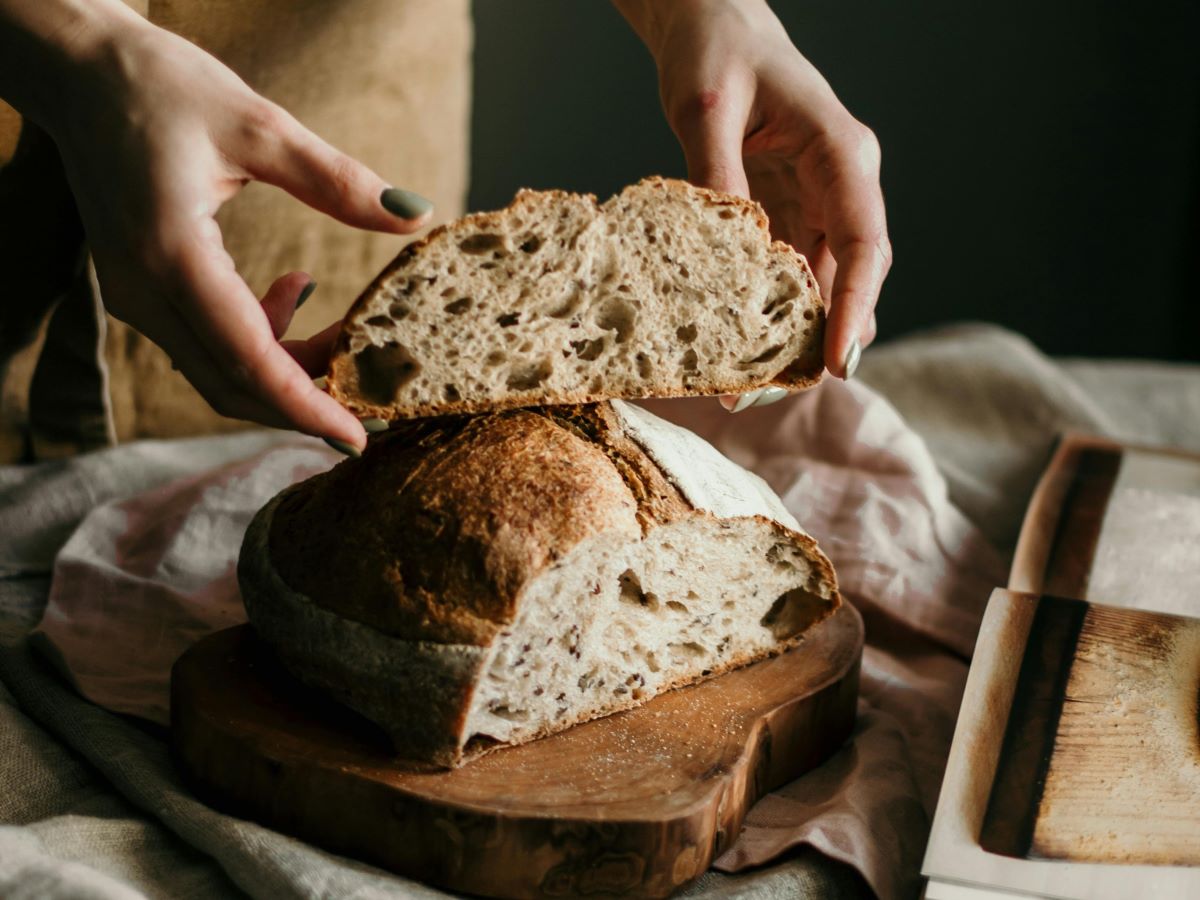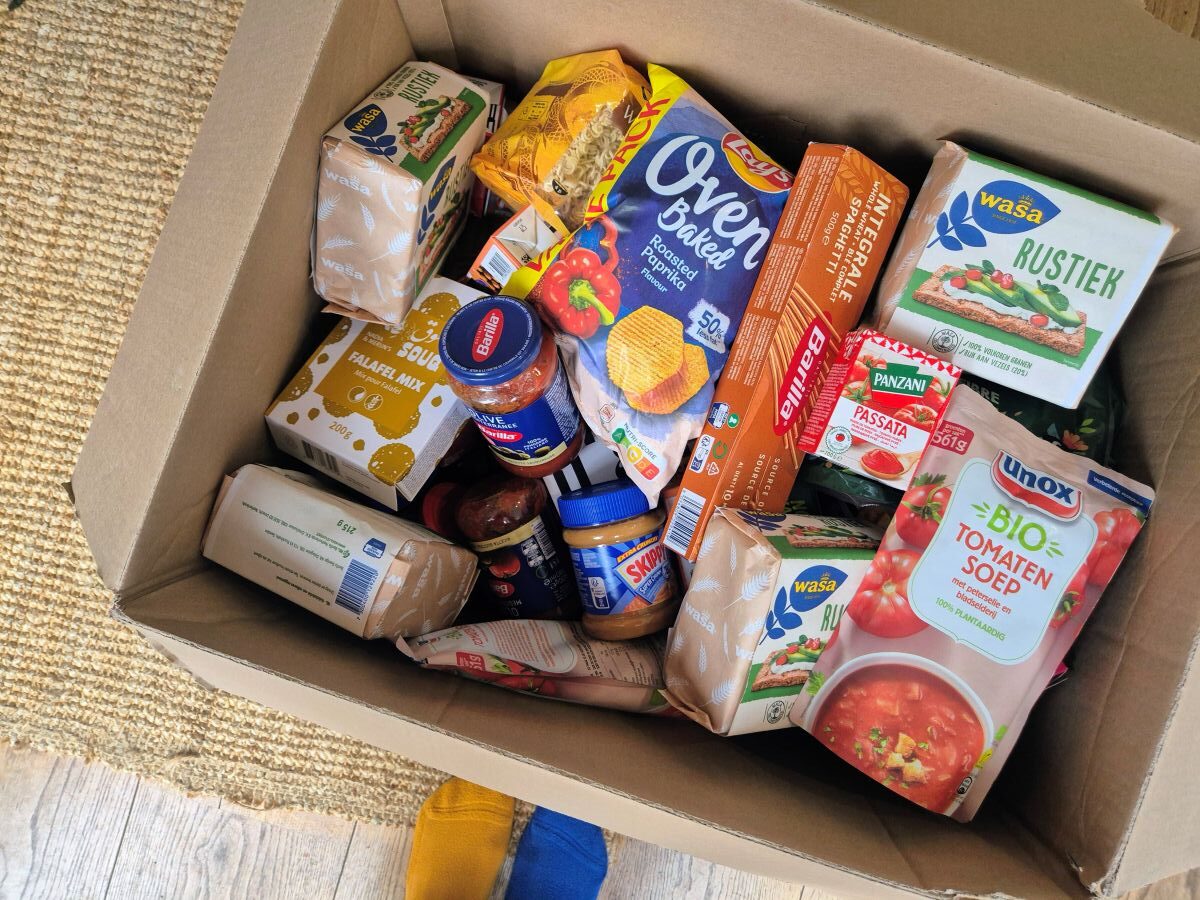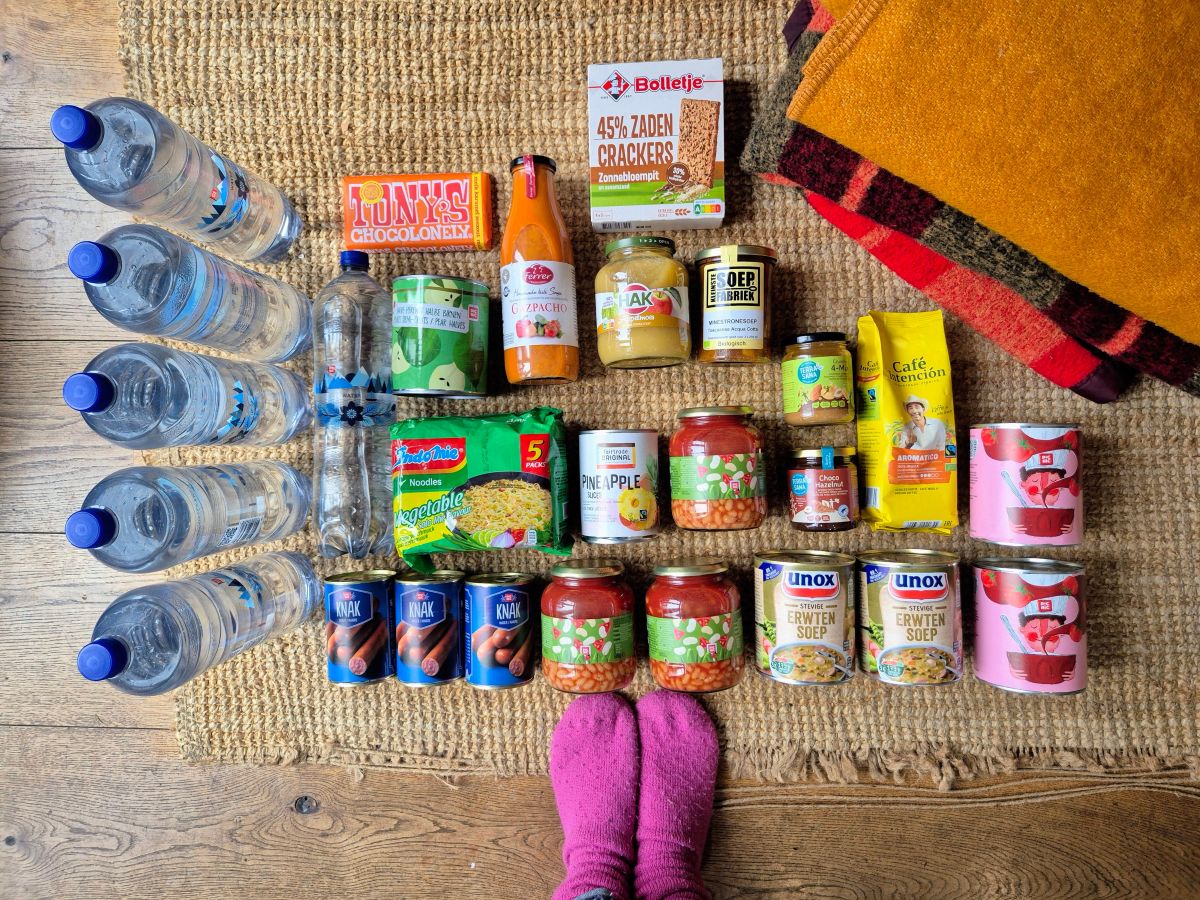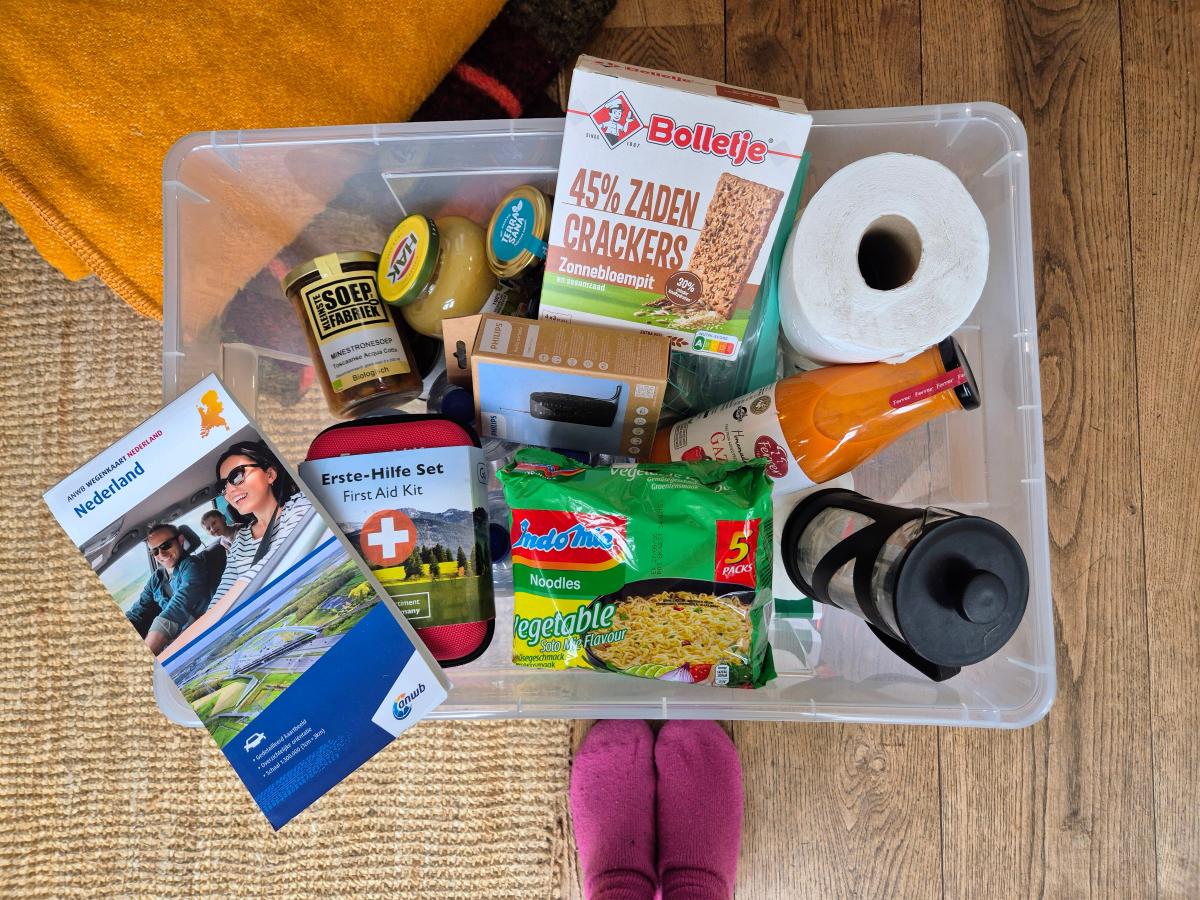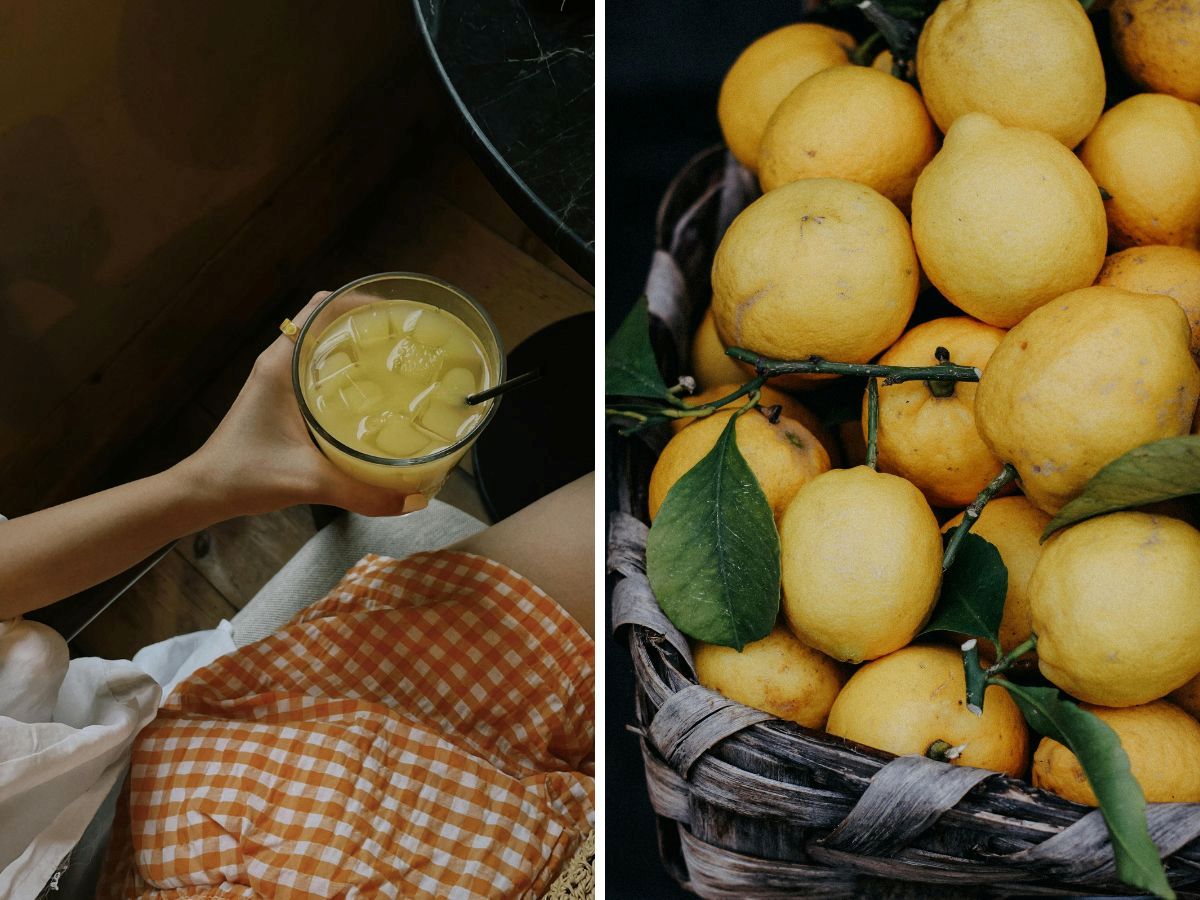Bread is vegan right? You'd think... It's made from flour, water, yeast and salt. With that base, you can bake your own bread at home just fine. So then the baker probably does too, right? Hmmm, it turns out things are different. If you buy bread at the bakery or supermarket, there are often other ingredients in it as well, making your apparently vegan bread not so vegan at all. And we found that quite a eye-opener. And so we dive into the world of bread! Is your sandwich actually vegan and how bad do you think it is?
(Too) crazy bread culture
A brown sandwich for breakfast, in the lunch box and when we travel we miss bread the most! Many Dutch people love bread. Brood.net calculated that an average Dutchman eats 49 kilograms of bread per year, which means on average about four slices of bread per day. So we are huge bread lovers, but what is actually in our bread besides flour, water, yeast and salt? Pretty illogical - crazy? - ingredients we found out - we'll get to that - and also not all breads are vegan. For instance, soft breads, currant buns and sweet pastries like croissants often contain milk and (cream) butter. This is no secret, this is often just bolded on the ingredient list in the supermarket to highlight these allergens.
Different types of bread and their ingredients
Bread comes in many shapes and sizes. Sourdough bread, rye bread, white bread, wholemeal bread and multigrain bread are some popular varieties. Although the basic ingredients are often the same, the additives can vary. For instance, white bread sometimes contains milk powder to make the texture softer, and eggs and butter are often used in sweet breads for a richer flavour. Sourdough bread - the homemade recipe can be found here - is usually vegan, as it contains only water, flour, and natural yeast cultures. It is always good to check, as some bakers may add other ingredients for flavour or texture.



Not all bread is vegan, especially croissants. Check with your supermarket or bakery.
Bread improver made from hair?
It is also rumoured to have animal and human hair in bread. What? Yuck! In 2014, the TV programme Inspectorate of Value made an episode about this and since then this rumour has been rearing its head every now and then. But is it true? We think it's a really dirty idea. In many (supermarket) breads, bread improver L-cysteine or the e-number E920 is added. This substance is added to make the bread dough less sticky and give it a better structure. This protein can be extracted from the hairs of various animals, such as pigs and birds' feathers. Fortunately, Dutch (supermarket) bakeries work with L-cysteine of vegetable origin, according to enquiries from Vegan Challenge. No hairs, then. Pfiew. Whether your fresh, hot bakery is also hair-free, you'll have to check. Fat chance it is.
E-numbers in vegan bread
E-numbers are common in food and thus also in bread. And that is not necessarily a bad thing. An e-number is an additive to food such as colourings, antioxidants, emulsifiers, stabilisers and thickeners. E-numbers (the E stands for Europe) are strictly regulated and therefore safe for consumption according to scientific standards. If you want to be sure your sandwich is vegan, you will have to decipher the e-numbers on the ingredient list of your supermarket bread. Pay close attention: an e-number can be either a natural or an artificial substance. And natural e-numbers can be either vegetable or animal in origin. Besides E920 mentioned above, there are more e-numbers that can be found in bread that are (potentially) of animal origin such as E322, D422, E471, E472 and E481. Want to know exactly for your bread? Then check with the Dutch Association for Veganism. Or contact your supermarket or bakery.
‘Vegan bread’ turned out not to be vegan
In 2022, the Dutch Association for Veganism that some bread products from the supermarket had a vegan mark but turned out not to be vegan. A mistake, in other words. So if you are vegan, it is smart to always double-check the ingredients yourself or look for the ‘real’ good labels such as the yellow-green logo of Vegan label. Then you can be sure it is completely free of animal ingredients. The Vegetarian Union manages and monitors the V-Label seal of approval in the Netherlands.
Looking for vegan bread
If you prefer not to have bread with animal ingredients, then you will have to forgo those delicious croissant and bake-off rolls and opt for wholemeal bread. Most (whole) supermarket breads - especially the wholemeal ones - are completely plant-based. Nice, because that is also the most nutritious choice. With bake-off rolls, buns and bakery bread, you don't have that certainty. You will then have to check the ingredient list yourself. Warm bakers are not obliged to list ingredients on the bread. So check next time you stand in line at the counter with your number.
An added benefit with vegan bread; it is often a healthier choice too. It tends to be lower in saturated fats and cholesterol, as it contains no butter or milk. Moreover, many vegan breads are made with whole grains, which contain more fibre, vitamins and minerals than refined grains. This can contribute to better digestion, lower risk of heart disease and improved overall health.
Vegan or not, the most sustainable bread is the bread you don't waste! We often waste more bread than we think, so spread your sandwiches on time, freeze your bread if you don't eat it straight away and transform those stale slices into crunchy croutons or delicious French toast. Using up your bread is not only good for the planet but also for your wallet. Find recipe ideas for stale bread here! Thank us later!
More sustainable tips from thegreenlist.nl
- For on bread: peanut butter! We got to take a look at TerraSana's organic peanut butter factory.
- Want to veganise more in your life? Tap a vegan egg!
- Perfume can also contain animal ingredients. Read why not all colognes are vegan here.
Photo credits: main image: Marta Dzedyshko (Pexels), baking: thegreenlist.nl, croissant: Cottonbro (Pexels), bread baking: Anna Shvets (Pexels). Sources: bread.net, broodengezondheid.be, academyforhealth.nl.

